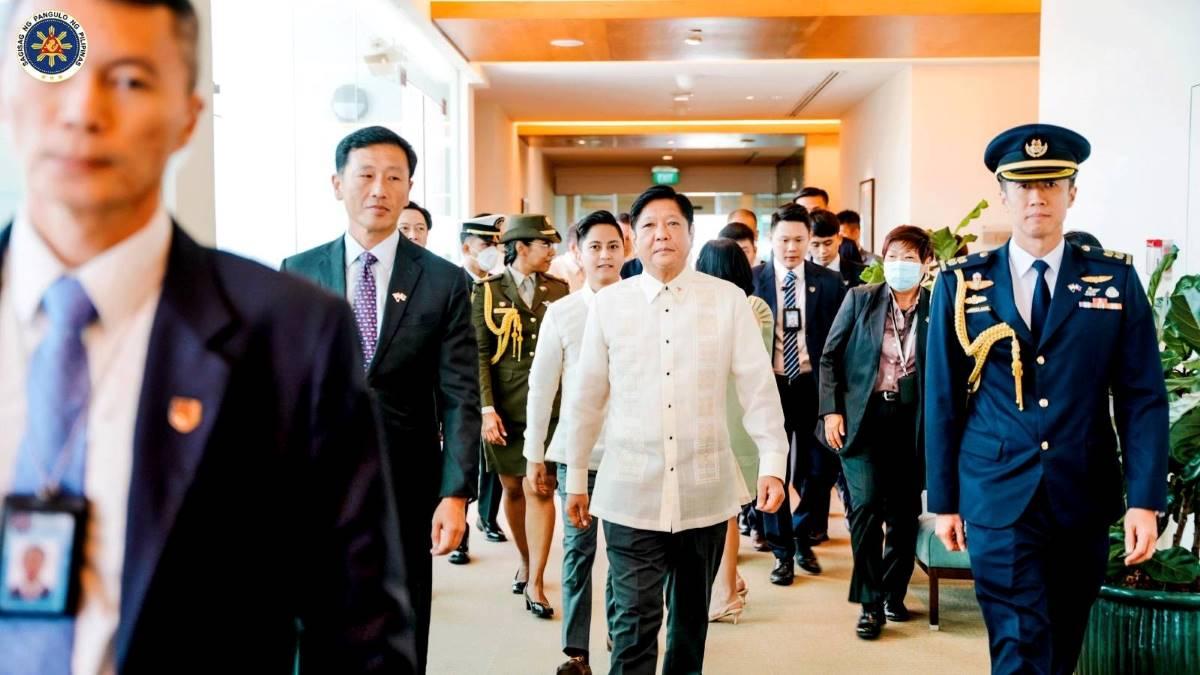Philippines, Singapore reaffirm keeping peace, stability in South China Sea

SINGAPORE — The Philippines and Singapore on Wednesday reaffirmed the importance of maintaining peace and stability as well as the freedom of navigation in the South China Sea.
President Ferdinand "Bongbong" Marcos Jr. is here for a two-day state visit upon the invitation of Singaporean President Halimah Yacob. Marcos also met Prime Minister Lee Hsien Loong.
In a joint statement between the two countries, the leaders reiterated the Association of Southeast Asian Nation's consistent position on the South China Sea and "reaffirmed the importance of maintaining peace, security, stability, safety, and freedom of navigation and overflight in and above the South China Sea."
They also underscored the use of peaceful resolution of disputes, meaning parties should not resort to threat or use of force, in accordance with international law, including the 1982 United Nations Convention on the Law of the Sea (UNCLOS).
The UNCLOS is of universal character and sets out the legal framework within which all activities in the oceans and seas must be carried out, the DFA said.
"They underscored the importance of the full and effective implementation of the Declaration on the Conduct of Parties in the South China Sea (DOC) in its entirety, and to conduct substantive negotiations towards the conclusion of an effective and substantive Code of Conduct in the South China Sea (COC) in accordance with international law, including 1982 UNCLOS, and that safeguards the rights and interests of all parties in the South China Sea," the statement read.
"They emphasized the need to maintain and promote an environment conducive to the COC negotiations," it added.
The Philippines has referred to parts of the South China Sea as West Philippine Sea.
The ASEAN has targeted new progress this year in the completion of the code of conduct with China to prevent armed confrontations in the disputed South China Sea.
Beijing has since refused to ignore the international arbitral court in The Hague, Netherlands invalidating its expansive claim over the region.
For the part of the Marcos administration, it promised to assert the Philippines sovereign rights in the region, but without engaging in war with the Asian Superpower. — RSJ/NB, GMA News




